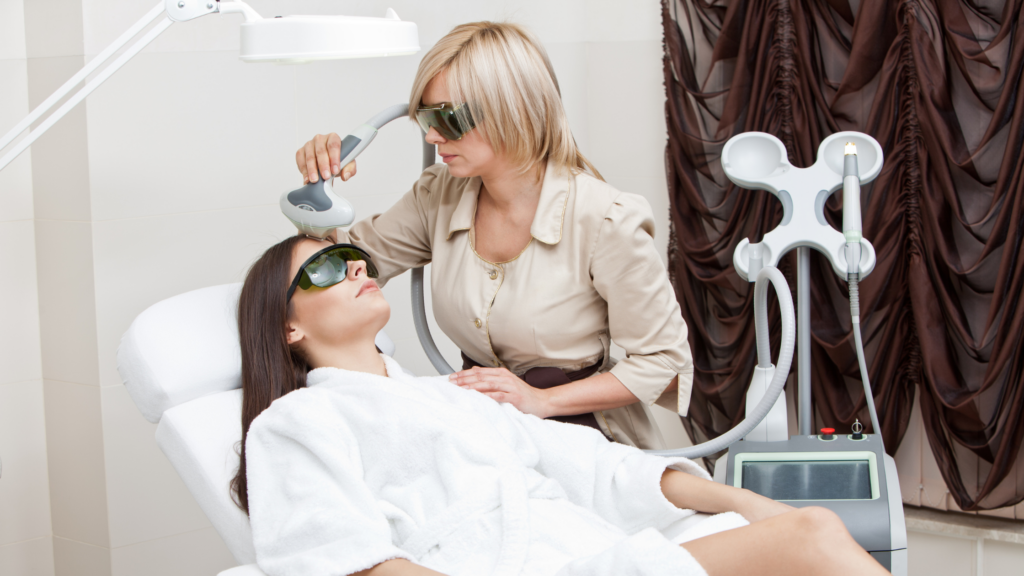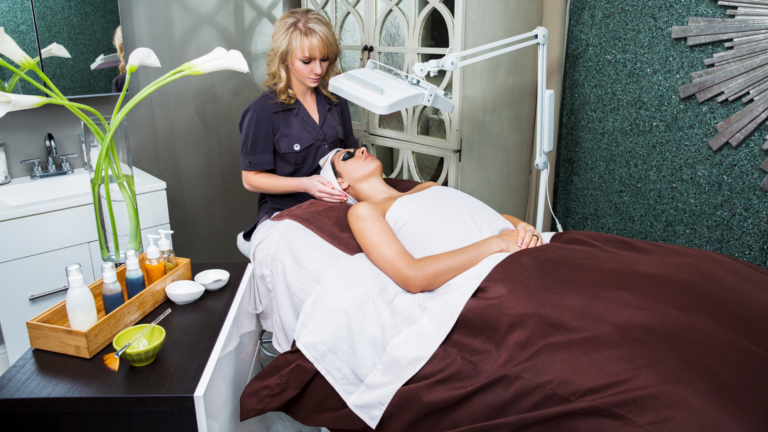Developing a medical spa requires more than just meeting the regulations. The licenses you need to operate and start a medical spa are a crucial part of the process. Licenses provide new opportunities, increase credibility, and develop a positive brand reputation. Professional licenses for practitioners show expertise, which attracts a larger clientele and encourages customer retention. An increased clientele and the ability to position the spa as a full-service aesthetic solution provider come from obtaining a controlled treatment registration.
In this blog, you will learn about the required licenses to protect the medical spa from potential legal consequences.
Privacy and Security Protections
Medical spas are required to comply with HIPAA regulations to ensure the privacy of patients and the security of their personal and medical information. You might as well consider PIPEDA if you’re in Canada.
- HIPAA Privacy and Security: All medical spas must meet the most updated versions of the HIPAA Privacy and Security Rules. These regulations outline the procedures required to safeguard patient records and ensure data privacy.
- Compliance with the Health Information Technology for Economic and Clinical Act (HITECH) is essential. It encourages the secure electronic exchange of health information and the adoption and meaningful use of health information technology.
- The Omnibus Final Rule: The Omnibus Final Rule amended and strengthened the HIPAA regulations, imposing new obligations on covered entities and business associates. To remain compliant, medical spas must align their practices with these rules.
HIPAA or PIPEDA requires a thorough examination of day-to-day procedures to ensure that customer privacy and data security are prioritized at every level of the business.
Additional Licenses and Permits
In addition, there are other licenses and permits necessary to operate a medical spa. These licenses may vary depending on the location and the services provided.

Let’s review a few common licenses and permits:
- Business License
All businesses, including medical spas, require a general business license to operate legally. This license ensures compliance with local regulations and covers basic aspects of running a business — such as taxation and zoning requirements — if you are located in the U.S. If you are located in Canada, you may as well follow the requirements for obtaining a business license based on the province in which you are planning to operate your medical spa.
- Professional License
Medical spa owners may also need specific professional licenses or certifications, depending on the location. These licenses show that the people who work in the medical spa are qualified and trained to provide their services.
- Business Insurance
Having the appropriate business insurance coverage is essential for a medical spa. As a result, the spa is protected financially in case of unexpected incidents and accidents, ensuring its financial well-being. General liability insurance protects against claims related to bodily injury, property damage, or negligence.
Read more: Medical spa business plan
Why do you require these licenses?
Licenses for medical spas are important for several reasons, including quality assurance and liability protection. In addition to evaluating practitioners’ qualifications, experience, and competency, licensing ensures industry standards are maintained while also ensuring patient confidence. Practitioners can effectively perform their roles when they meet the necessary standards and possess the required skills. A medical spa with the appropriate licenses and permits can also protect itself from legal liability by providing safe and responsible care. By taking a proactive approach, a number of claims or adverse outcomes can be avoided.
Licensing ensures that medical spas adhere to specific health and safety standards, such as sanitation practices, infection control measures, and proper handling of medical equipment and supplies. This also protects public health and ensures that medical spa services are provided in a safe environment.
The Importance of Licenses in Medical Spa Success
Licenses also demonstrate the spa’s dedication to customer care. When patients see that practitioners have licenses and certifications, they start feeling more confident in the staff’s expertise and qualifications. This trust and assurance contribute significantly to customer satisfaction.
Client retention is closely related to the medical spa’s service quality and overall experience. Spas can ensure that they consistently deliver high-quality care while meeting their patients’ expectations by prioritizing compliance with licensing requirements. Satisfied customers are more likely to return for additional treatments and refer your spa to others. This also results in word-of-mouth marketing or referral marketing. Word-of-mouth marketing simply means incentivizing customers to tell their friends about your service.


Furthermore, licenses provide patients with an extra layer of security. The regulatory oversight involved in the licensing process aids in the monitoring and correction of any potential misconduct or negligence by practitioners. This accountability reassures patients that the medical spa’s top priority is their well-being.
What Happens If You Don’t Get These Permits?
Operating a medical spa without the necessary licenses and permits can result in a variety of consequences and difficulties. It is critical to note that obtaining licenses and permits is also a means of ensuring the safety and well-being of both patients and the business itself.
Failure to obtain the required licenses and permits may result in penalties, fines, or even the closure of the spa, according to the law. Regulatory authorities typically have specific requirements in place to protect public health and safety. Failure to meet these requirements may result in legal consequences that are both financially burdensome and damaging to the spa’s reputation.
A further risk to patient safety is operating without the required licenses and permits. These laws are in place to make sure that medical spas adhere to strict health and safety guidelines. Without proper oversight, there is a higher risk of unhygienic conditions, poor equipment maintenance, and a lack of emergency preparedness. This could cause patient injuries, infections, or other detrimental health effects, which could not only be harmful to the individuals involved but also expose the spa to legal liabilities and harm its reputation.
Obtaining licenses and permits shows the spa’s dedication to professionalism, customer satisfaction, and ethical practices. The spa demonstrates its commitment to maintaining high standards, providing safe and quality services, and fostering trust with its patients by obtaining the necessary licenses and permits.
To summarize, opening a medical spa necessitates a thorough understanding of the licensing requirements for such a facility. Verifying medical credentials, following HIPAA or PIPEDA compliance, and obtaining the required licenses and permits are critical steps in ensuring legal compliance, customer safety, and professional standards. By following these guidelines, you can establish a reputable and legally compliant medical spa that provides high-quality services while putting your patients’ health, safety, and satisfaction first.
- Licenses and permits are critical for a medical spa’s success and growth, as they provide new opportunities, increase credibility, and cultivate a positive reputation.
- Professional licenses attract more customers, whereas facility licenses demonstrate a commitment to safety and help establish a strong brand reputation.
- By adhering to regulations and professional standards, licensing protects the spa from legal ramifications and instills patient confidence.
Read more: Med spa laws by US states
- HIPAA or PIPEDA compliance, depending on the country you are operating your business in, protects patient privacy and data security.
- For business, professional, and facility operations, additional licenses and permits are required.
- Customer satisfaction, retention, and positive word-of-mouth referrals are all improved by licensing.




